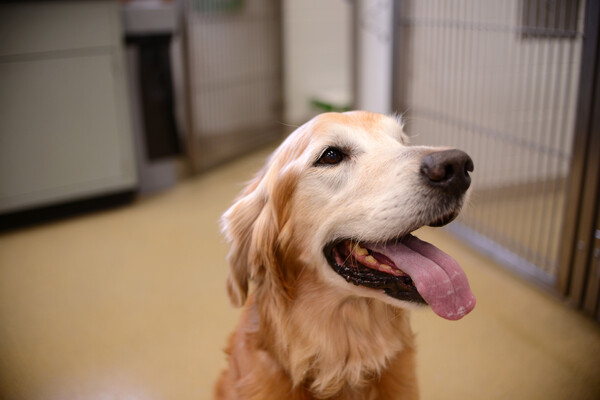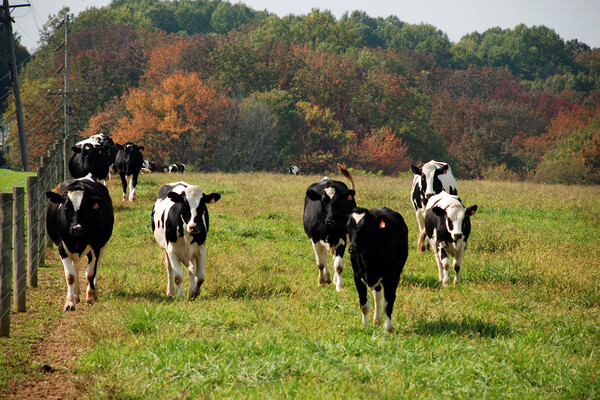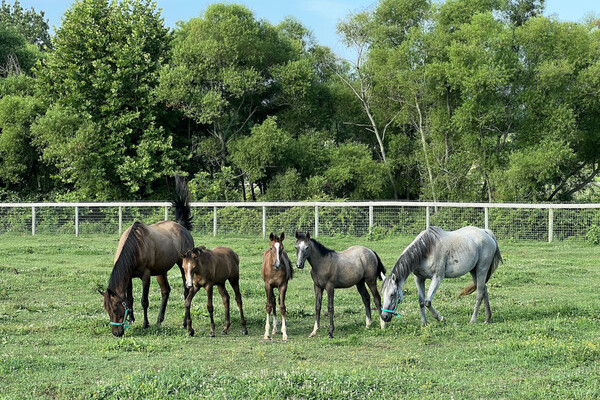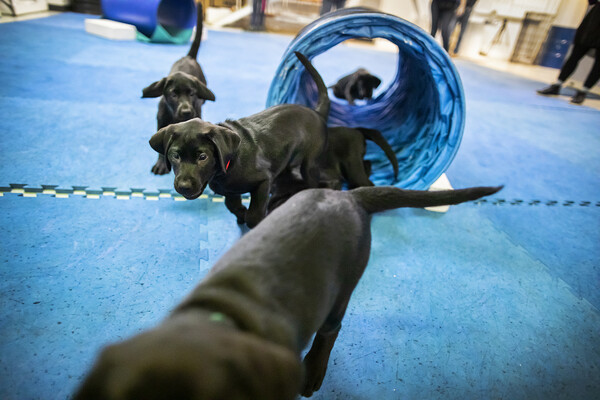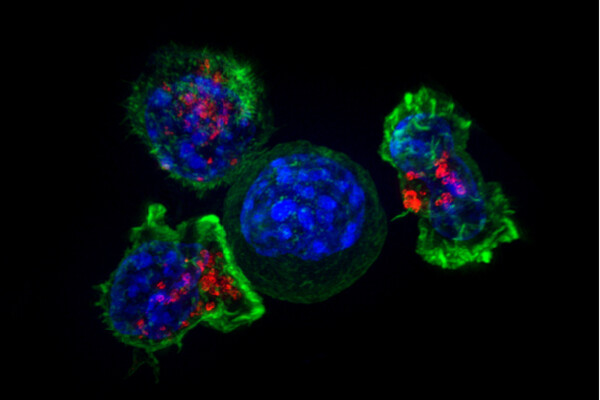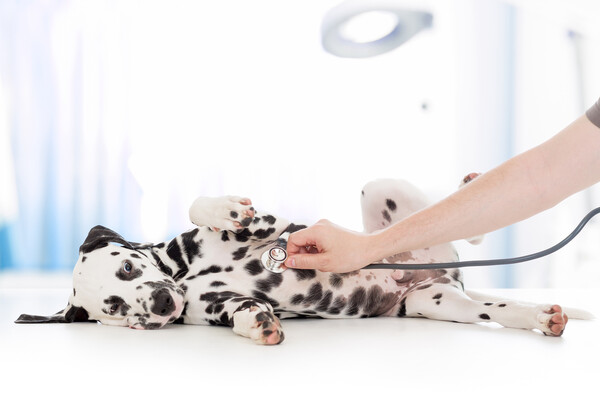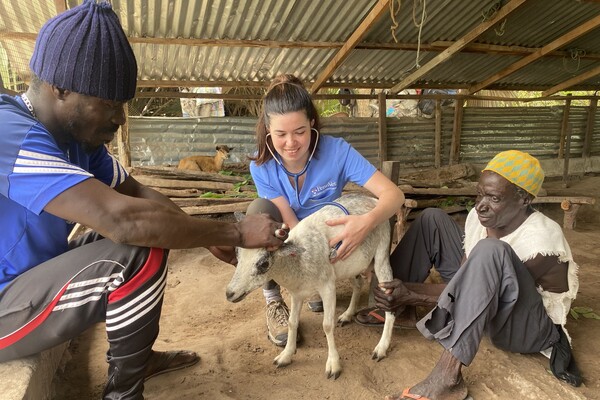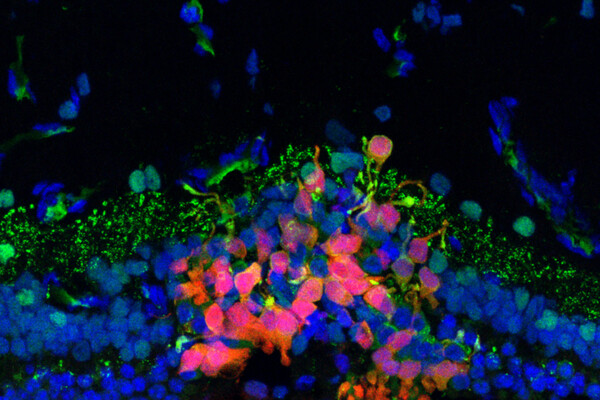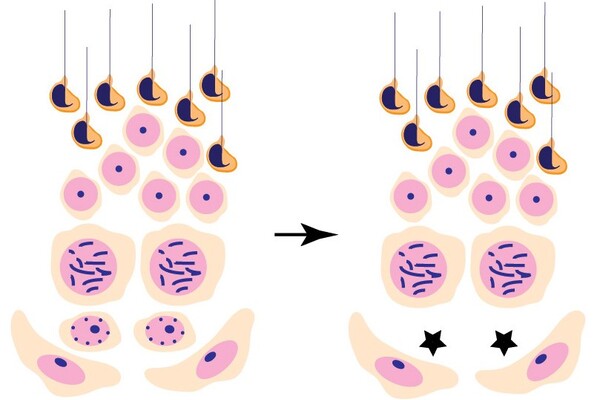4/16
Veterinary Medicine
NIH-funded canine immunotherapy data center charts a path toward transformative therapies
With support recently granted for five more years, Nicola Mason of the School of Veterinary Medicine and Qi Long of the Perelman School of Medicine hope their work leads to new insights in cancer care for people as well as pets.
Meeting a ‘generational challenge’: Feeding the world and doing it sustainably
With the launch of the Center for Stewardship Agriculture and Food Security, the School of Veterinary Medicine is working “to make animal agriculture part of a solution to a more resilient, sustainable, and equitable future.”
Making ‘true’ equine IVF a reproducible success
A new method developed by Katrin Hinrichs and colleagues in the School of Veterinary Medicine resulted in the birth of three healthy foals, opening the door to new insights in the basic biology of horse reproduction.
A decade of advancing working dogs for the greater good
Inspired by her experience caring for working dogs following 9/11 at Ground Zero, Penn Vet Working Dog Center Director Cynthia Otto’s initial vision has grown into a thriving organization with a mission to use science to improve the breeding, training, care, and effectiveness of working dogs.
T cells that ‘nibble’ tumors unwittingly help cancer evade the immune response
Blocking this process, known as trogocytosis, improved the ability of a CAR T cell therapy to treat cancer in mice, according to research led by School of Veterinary Medicine scientists.
Cooler temps and northern climes associated with increased diabetes diagnoses in dogs
Mirroring a finding in humans, diabetes diagnoses in dogs were more common in colder areas of the U.S. and during winter, according to a new study led by School of Veterinary Medicine researchers.
The Gambia Goat Dairy builds sustainability through community
Since its founding by Penn Vet students in 2016, the Gambia Goat Dairy has worked in partnership with Gambians to serve its community. The research and teaching farm also gives current students the opportunity to use their veterinary skills for social good.
Progress toward a stem cell–based therapy for blindness
A multi-institutional effort led by researchers at the School of Veterinary Medicine is taking steps to develop an effective technique to regenerate photoreceptors cells and restore sight in people with vision disorders.
A newly identified stem cell regulator enables lifelong sperm production
Research led by Jeremy Wang of the School of Veterinary Medicine has discovered that the enzyme DOT1L, a stem cell renewal factor, is essential for mice to produce sperm throughout their adult lives.
A Penn Vet tale: Olive, the tiny little fighter
When Olive, the four-month-old Shih Tzu mix, became critically ill with respiratory distress, clinicians at Penn Vet’s Ryan Hospital spent a week collaborating on intensive treatment.
In the News
How to (responsibly) let your cat outside
James Serpell of the School of Veterinary Medicine says that some cats are perfectly happy within the confines of the home, while others have a greater desire to wander, explore, and investigate.
FULL STORY →
Cats aren’t jerks. They’re just misunderstood
James Serpell of the School of Veterinary Medicine says that the domestic cat suffers from its legacy of being a not-quite-wild animal on the margins of society.
FULL STORY →
Dog respiratory illness map update: Mystery disease spreads to more states
Deborah Silverstein of the School of Veterinary Medicine says that the dogs most at risk for respiratory illness are those with low immunity, such as young puppies, the unvaccinated, or older dogs, and potentially short-nosed breeds.
FULL STORY →
What’s causing severe respiratory illnesses in dogs?
Deborah Silverstein of the School of Veterinary Medicine says that more dogs may be getting severely ill because they have been infected with multiple pathogens at the same time.
FULL STORY →
What you need to know about the ‘mystery’ dog disease
Deborah Silverstein of the School of Veterinary Medicine explains how to protect dogs from the recent respiratory outbreak.
FULL STORY →
Mystery respiratory dog illness has pet owners concerned. Here’s what vets are saying
Deborah Silverstein of the School of Veterinary Medicine says that a mysterious respiratory canine illness is likely a resurgence of some of the organisms seen with kennel cough.
FULL STORY →




